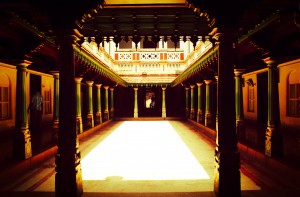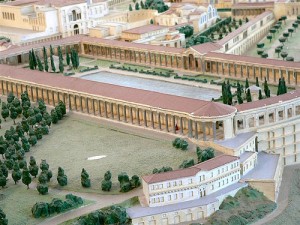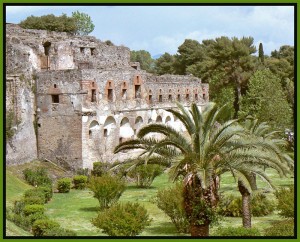Rudofsky introduces the topic by arising a doubt in the minds of the people -Have the amenities of modern life have fostered the belief that we have conquered the inconveniences of our climate. Just because we are able to heat our sidewalks, have ice skating rings in summer and infinity pools in winter we can’t say that we have come in terms with the outdoor climate. Thus climate cannot be conquered, it does not surrender or vanish. One either lives with it or turns a blind eye to it. We are anything but at peace with the climate.It is said that “what cannot be helped, one tries to ignore”. But climate is more than the air we breathe-everything from our skin color to our spirit, restlessness, diet, taste is affected by the climate.
People continue to live a normal life without emerging in the open air. The future lies in people living underground without impairing their happiness and the only business they would have with the ground is dumping garbage. Is it the only answer to a hostile climate?
Our forefathers were given a choice to select a place for habitation. They chose New England or less habitable regions of America than Guina, a country which is blessed with the perpetual weather conditions and is self-sufficient, where all things were in abundance without labor of man required. In short the perfect country to settle in.They choose England because they thought that facing a hostile climate would build up their stamina. Thus they made no attempt to build permanent settlement .They lived in log cabins.
The hostile climate did not initiate an intimate relationship of the indoors with the outdoors. The house was the only relationship and probably a garden. A garden which was just an element but had no relationship with the indoor as well as its inmates due to the hostile climate. Thus the selection of New England was not only a blunder, it also breaded people who alone had the stamina to face it.
“This situations arises a question, “Does climate control end at ones doorsteps?”
Ideally the answer is no, it’s about making yourself feel at home out of doors. We should be able to do all activities outdoors like eat sleep play, work. People who dwell within their indoors make no attempt to build a relationship with the indoor and the outdoor. They do not think of a garden as a potential living space. It’s just an ornament whereas the garden should be a place for lying in the grass, swinging.growing flowers. For some moods, some times of the day, some kind of friendship, people need a place to eat, sit, play, talk together, be still yet be outdoors. But in present scenario the use of glass in this modern contemporary world has reduced the garden to a spectator through a picture window.
This situations forces the author to give examples of the ancient gardens of the world such as the Hadrian’s villa, gardens of Pompeii. The historical gardens were valued for their habitableness and privacy which are conspicuously absent in the modern day contemporary gardens. The common features shared by these historical gardens were that these gardens were an essential part of the house, they were termed as outdoor living rooms. They had vegetation in abundance and the materials used would induce a feeling of indoors. Apart from vegetation they had other elements such as the bench, gate, fence which sometimes give the same pleasure as a tree would.
The gardens of Pompeii had another special element, “the wall”. Although the wall was non-utilitarian it had several functions, it was a piece of sculpture between the tress yet it gave a sense of order which made the gardens habitable.
Therefore I would conclude that “The Conditioned Outdoor Room” could be termed as environmental relationship because it talks about the relationship of an indoor space with an outdoor space and positional relationship because it talks about different eras as well as the present scenario.
POSSIBLE TOPIC OF INTEREST- Trying to revive the primitive concept of courtyards. Are we taking a step towards global warming or a step behind?




